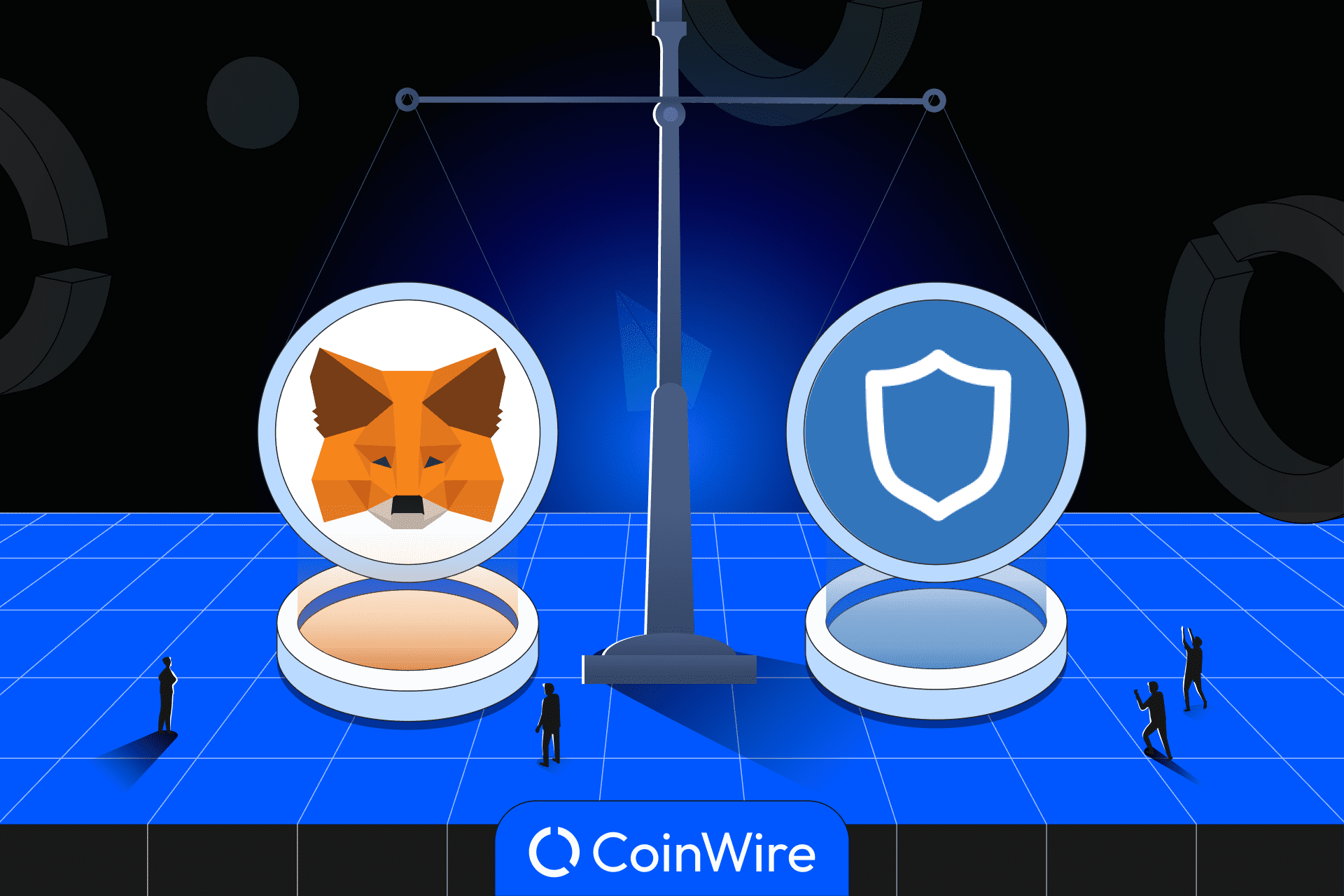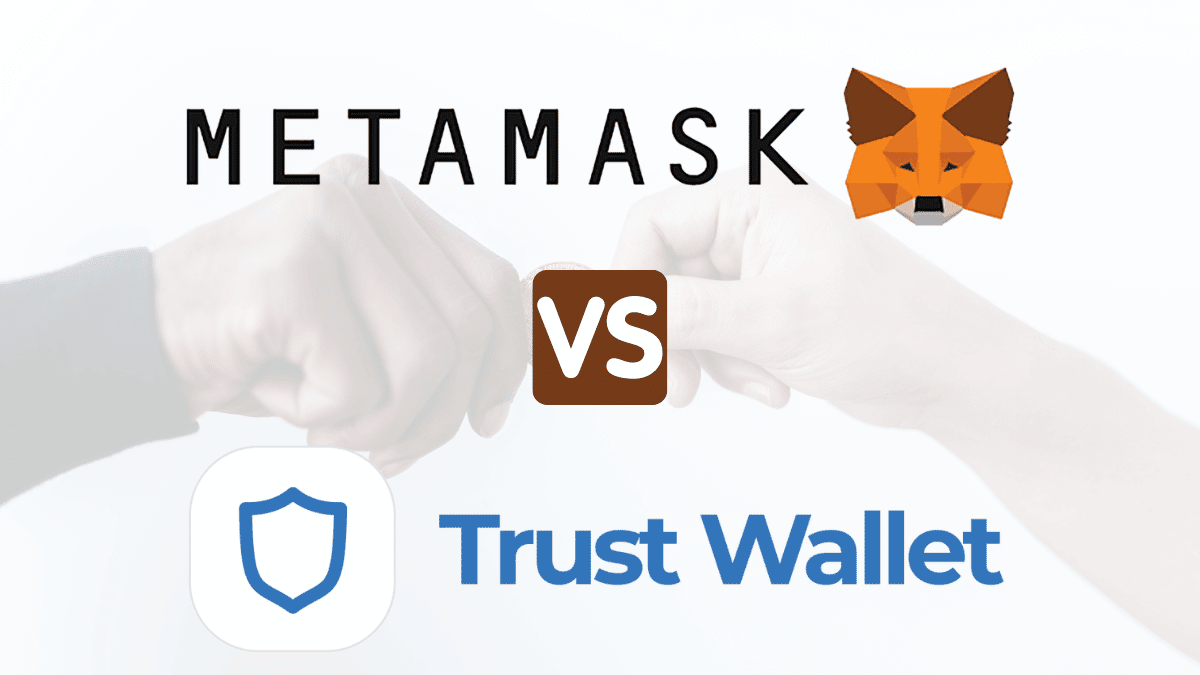The Evolution of Metamask: A Competition for Trust Wallet

Image Source: Unsplash
Are you looking to securely access the world of decentralized finance? Then you're probably familiar with Metamask and Trust Wallet, two popular choices in the world of crypto wallets. While Trust Wallet has been a dominant player in the space for quite some time, a new contender has emerged: Metamask. In this article, we will explore the evolution of Metamask and how it is quickly becoming a formidable competition for Trust Wallet.
The Importance of Cryptocurrency Wallets
Cryptocurrency wallets play a crucial role in the world of decentralized finance. They are the gateways to accessing and managing your digital assets securely. These wallets provide a convenient way to store, send, and receive cryptocurrencies. They are essential tools for anyone looking to participate in the growing world of blockchain technology. As the popularity of cryptocurrencies continues to rise, the need for reliable and user-friendly wallets becomes increasingly important.
What is Metamask?
Metamask is a cryptocurrency wallet that allows users to securely manage their digital assets. It was launched in 2016 by ConsenSys, a blockchain technology company founded by Joseph Lubin, one of the co-founders of Ethereum. Metamask started as a browser extension wallet, primarily targeting users of the Ethereum network. However, it has since expanded its support to other blockchains, making it a versatile option for users with diverse cryptocurrency holdings.
Metamask stands out for its user-friendly interface and seamless integration with popular decentralized applications (dApps). It provides a convenient way to interact with the decentralized web, allowing users to access and use dApps directly from their wallets. With Metamask, users can easily connect their wallets to popular web browsers like Chrome and Firefox, making it accessible to a wide range of users.
What is Trust Wallet?
Trust Wallet, on the other hand, is a mobile cryptocurrency wallet that was acquired by Binance, one of the largest cryptocurrency exchanges in the world, in 2018. It was initially designed as an Ethereum wallet but has since expanded its support to other blockchains, including Binance Smart Chain. Trust Wallet is known for its simplicity and ease of use, making it a popular choice among beginners in the cryptocurrency space.
The Features and Functionalities of Metamask
Metamask offers a range of features and functionalities that make it a compelling choice for cryptocurrency enthusiasts. Firstly, it supports multiple blockchains, including Ethereum, Binance Smart Chain, and other Ethereum-compatible networks. This multi-chain support allows users to manage a variety of cryptocurrencies from a single wallet, providing convenience and flexibility.
Another notable feature of Metamask is its integration with popular web browsers like Chrome and Firefox. This integration allows users to seamlessly interact with decentralized applications (dApps) directly from their browser, eliminating the need for additional software or extensions. Metamask also provides a secure way to store private keys and seed phrases, ensuring the safety of users' funds.
The Rise of Metamask in the Cryptocurrency Market
Since its launch, Metamask has experienced significant growth and adoption in the cryptocurrency market. Its user-friendly interface and seamless integration with web browsers have made it a popular choice among users looking to explore decentralized finance. Metamask's commitment to privacy and security has also played a crucial role in its success, earning the trust of users in an industry where security is paramount.
The Competition between Metamask and Trust Wallet
With the emergence of Metamask as a strong contender in the cryptocurrency wallet space, the competition with Trust Wallet is heating up. Both wallets offer similar features, including multi-chain support and secure storage of various cryptocurrencies. However, they also bring their own unique offerings to the table.
One area of competition between Metamask and Trust Wallet is their user experience. While Metamask focuses on providing a seamless and intuitive interface for interacting with dApps, Trust Wallet excels in simplicity and ease of use. The choice between the two wallets ultimately depends on the user's preferences and requirements.
User Reviews and Feedback on Metamask and Trust Wallet
To gain insights into the user experience of Metamask and Trust Wallet, let's take a look at some user reviews and feedback. Many users praise Metamask for its user-friendly interface and seamless integration with web browsers. They appreciate the convenience of managing multiple cryptocurrencies in a single wallet and the ability to easily connect with dApps.
Trust Wallet, on the other hand, receives positive feedback for its simplicity and ease of use. Users appreciate its intuitive design and straightforward setup process. They also value the security features implemented by Trust Wallet, such as biometric authentication and hardware wallet integration.
Conclusion and Future Prospects of Metamask and Trust Wallet
In conclusion, the competition between Metamask and Trust Wallet is driving innovation in the world of decentralized finance. Both wallets offer unique features and functionalities that cater to different user preferences. Metamask's seamless integration with web browsers and its commitment to privacy and security position it as a strong competitor to Trust Wallet.
As the cryptocurrency market continues to evolve, the future prospects of Metamask and Trust Wallet look promising. Their ongoing development and improvements will further enhance the user experience and attract more users to the world of decentralized finance. Whether you choose Metamask or Trust Wallet, it's important to prioritize security and usability when managing your digital assets.
The evolution of Metamask and its competition with Trust Wallet highlights the rapid advancements in the cryptocurrency wallet space. With user-friendly interfaces, robust security measures, and seamless integration with the decentralized web, these wallets are empowering individuals to take control of their financial future in an increasingly digital world.
References:





![[LIVE] Engage2Earn: Veterans Affairs Labor repairs](https://cdn.bulbapp.io/frontend/images/1cbacfad-83d7-45aa-8b66-bde121dd44af/1)





















